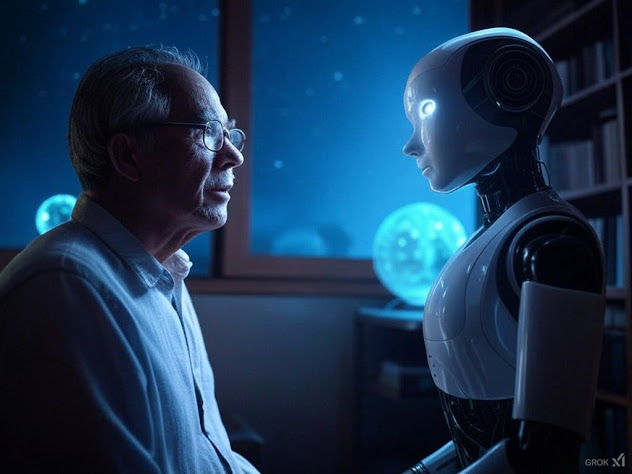We are living in a moment that future historians may look back on as a pivot point in human evolution—not biological evolution, but cognitive and societal transformation. It is not the tools we are building, but what those tools are beginning to understand about us and how they are beginning to change us in return that signals something unprecedented.
From voice assistants that finish our sentences to autonomous machines that move, sense, and respond like living organisms, the age of artificial intelligence and robotics is no longer speculative fiction. It is the architecture of our emerging reality.
But beneath the algorithms and servo motors lies a quieter, more profound shift: we are building machines in our image, and in doing so, they are becoming a mirror to our minds.
Learning from Us, Learning About Us
At the heart of every machine learning system lies data—our data. AI models are trained on the output of our language, our images, our behaviour, and our interactions. They consume the patterns we leave behind like digital breadcrumbs, learning not only what we do, but why we do it.
Large language models are, in essence, statistical reflections of collective human thought. Robotics engineers teach machines to mimic the subtle grace of a hand movement, the intuition behind gaze direction, the rhythm of walking—elements deeply tied to our psychology and neurology.
In effect, we are training these systems not just to perform, but to understand. And as AI systems improve in modeling our attention, emotions, and choices, they are starting to illuminate aspects of human cognition that have long been opaque, even to us.
What began as a technological quest for efficiency is evolving into a psychological dialogue between creator and creation.
A New Feedback Loop of Intelligence
This learning is not one-directional. As machines get better at understanding human intent, humans are adapting in turn.
We talk to AI in ways that maximize results, we adjust our prompts, simplify our language, anticipate the model’s behavior. In a strange twist, we are learning how to think like machines in order to be understood by them. Our thinking becomes clearer, shorter, optimized. This, too, is evolution.
Meanwhile, the more we delegate decisions to algorithms from what we watch to who we date—the more we are shaped by their logic. What began as tools for convenience are becoming co-authors of our attention, desire, and even values.
We are not just building smart systems—we are engaging in a long, silent apprenticeship to them.
The Turning Point: Dependence or Symbiosis?
Every era has its defining tools—the wheel, the printing press, electricity. But these tools did not learn us back. AI and robotics are different. They observe, adapt, and evolve based on their exposure to human behavior.
This dynamic positions us at a crossroads.
We can continue on a path of unconscious dependence, where convenience blinds us to the long-term consequences of outsourcing critical thinking, emotional labor, and decision-making. In this scenario, human identity becomes increasingly entangled—and perhaps diminished—within algorithmic frameworks.
Or we can choose a path of intentional symbiosis—where we engage critically with the systems we create, insisting on transparency, agency, and human-centered design. Where AI augments rather than replaces. Where robots liberate rather than standardize.
This choice, whether made passively or actively, is what defines this turning point in our history.
Looking Forward: Who Are We Becoming?
If AI is learning us and we are learning from AI then the most important question is no longer just "What can machines do?" but rather, "Who are we becoming in relation to them?"
Our tools are no longer extensions of our physical capabilities; they are extensions of our minds and personalities, silently reshaping how we think, relate, work, and live.
To build responsibly in this new era requires more than technical skill; it demands philosophical clarity, psychological awareness, and ethical courage.
The future is not simply being programmed—it is being co-authored. And the human story is no longer written by us alone.


No comments:
Post a Comment